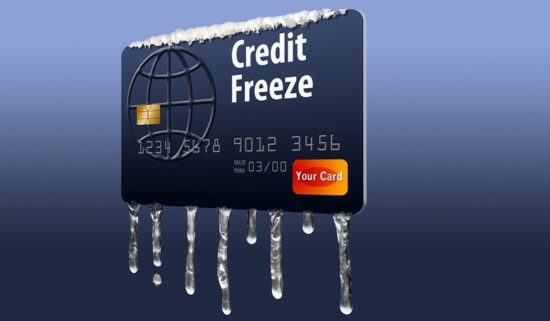
The law President Trump signed late last week had attempted to dismantle the post-credit crisis legislation known as Dodd-Frank. While it achieves some of that for big banks, it also gives consumers some additional tools to protect their credit reports.
Improved Fraud Alerts
Fraud alerts notify lenders that someone else may try to apply for credit in your name. Lenders must then take reasonable steps to verify the identity of anyone requesting credit in your name.
To take pre-emptive action, you can file an initial fraud alert with one of the three major credit bureaus (Equifax, Experian, and TransUnion). The bureau that receives the filing will notify the other two bureaus.
Under current law, initial fraud alerts only last for ninety days. The new act extends them to one year. Initial fraud alerts are still free, and they can still be re-applied after the time lapses.
If you are a confirmed victim of identity theft or fraud, you can place an extended fraud alert for up to seven years. That remains unchanged.
Free Credit Freezes
When you apply a credit freeze, no potential creditor can access your credit report to establish a new line of credit – even if you are the one making the request.
To apply for new credit, you must remove the credit freeze (also known as thawing the account) prior to submitting the credit application and reapply the freeze after the new account has been established.
You must freeze your account at each of the three credit bureaus individually.
Fees for Freezes
Currently, state laws govern the fees associated with each freeze or thaw. Typically, freezes and thaws are free for confirmed victims of credit fraud and range from $2 to $10 for other consumers.
In some states, you could pay up to $30 for each freeze or thaw. The new legislation eliminates these fees, making credit freezes free to all.
Critics note that by placing credit freeze policy under federal law, state laws with stronger protections may be pre-empted.
State or Federal Oversight
The battle between state and federal oversight is likely to continue – but, in the meantime, most consumers will benefit from free credit freezes and thaws.
Credit protections for children were also addressed in the new bill. Child identity theft usually isn’t spotted until many years later, when the child’s credit is already ruined.
Under the new law, representatives of minors aged sixteen and under can prevent theft by freezing their child’s credit for free. They may ask that a file be established for their child to freeze it, also for free.
Effective Dates
These changes are set to take effect in September — 120 days after the President signed the bill.
To be sure you understand the provisions of your state laws and how they may change, contact your state Attorney General’s office and any other state office responsible for consumer protection laws.
Remove Bad Information
Other reporting changes to the credit bureaus are designed to make it easier to remove adverse information from your credit report.
You may be able to remove defaulted private student loans from your credit report if you’re involved in a loan rehabilitation program through your lender and you make enough on-time payments to demonstrate both willingness and ability to pay off the loan on time from that point forward.
Veterans with Medical Debt
If you’re a veteran with medical debt, the new law offers further relief. Your medical debt can’t be reported to the bureaus until one year after the medical services took place.
Under current law, the grace period for reporting is 180 days from default of the medical debt.
If you’re a veteran with medical debt in collections, the debt must be removed from credit reports when the debt is paid, settled, or assumed by the Department of Veteran Affairs. Generally, removal takes seven years under existing law.)
If you’re on active military duty, you will also be able to sign up for free credit monitoring through the credit bureaus. Some sites already do this for free, but the new Act requires the offer.
The Takeaway
Whether you look at the dismantling of Dodd-Frank as correcting regulatory overreach or as the gateway to the next recession, the new bill’s effects on credit reports and credit freezes can help you in the short term – if you choose to use them.
Note that almost all of the legislative changes are passive. If you don’t use fraud alerts or credit freezes, the new rules have no effect on you at all.
Similarly, a lender isn’t going to remove a private student loan default from your credit report unless you ask.
Credit Management
Proper credit management requires action on your part. Check your accounts and your credit report regularly for signs of identity theft or fraud.
Promptly correct any errors that you find with the credit bureaus. If any of these new provisions can improve your credit score, apply them at the first opportunity.
Finally, take advantage of fraud alerts or credit freezes as they may apply to your situation. Either one may cause mild inconvenience, but that’s nothing compared to the misery of rebuilding your credit after criminals have destroyed it.
If you would like to monitor your credit to prevent identity theft and see your credit reports and scores, check out our free credit monitoring service.
This article was provided by our partners at moneytips.com. Photo ©iStockphoto.com/Robertindiana
If you enjoy reading our blog posts and would like to try your hand at blogging, click here to get started.
Read More
- 10 Best States to Live in With a Bad Credit Score
- What is a Good Credit Score Anyway?
- How to Drastically Improve Your Credit Score
- Can You Erase Bad Credit Instantly?